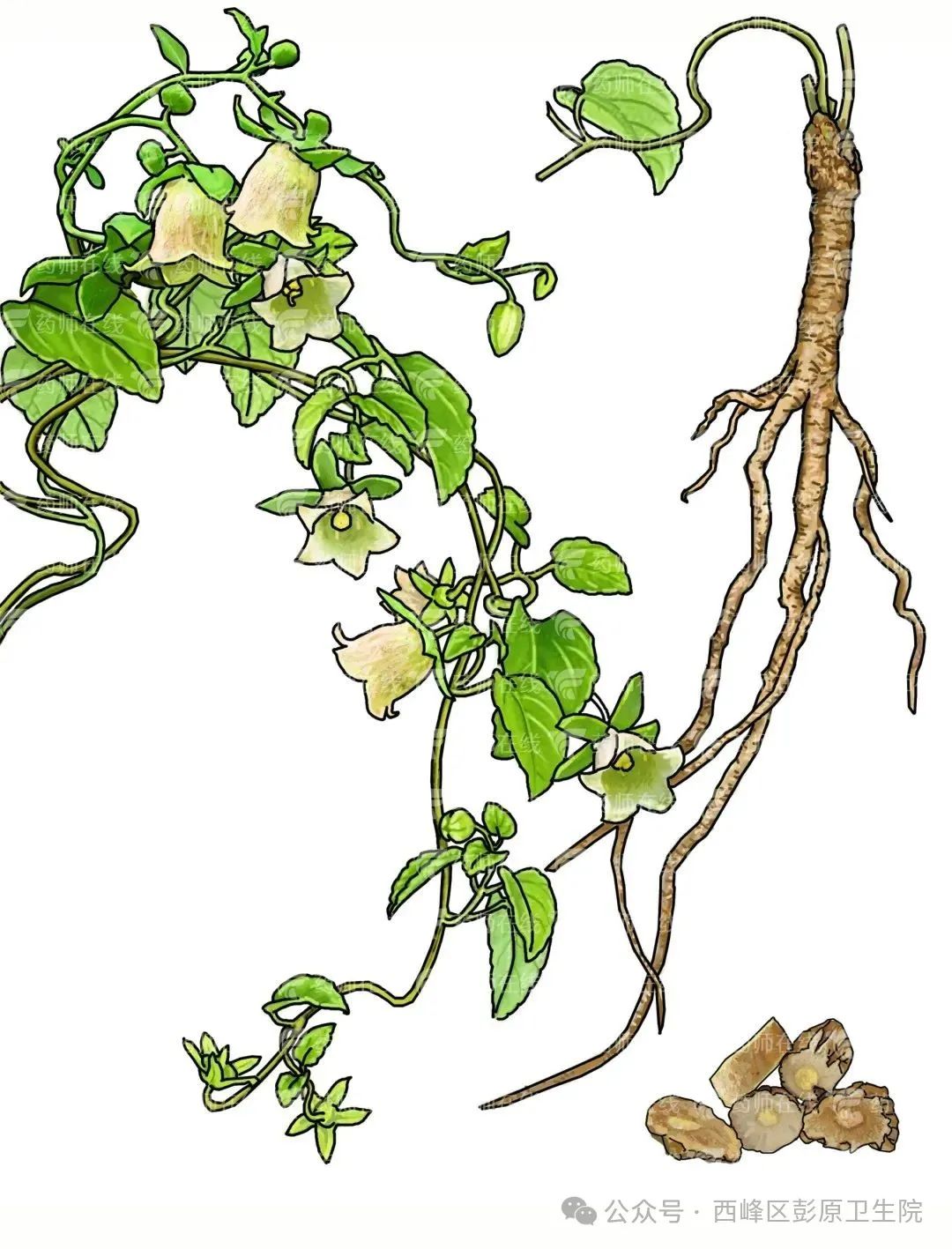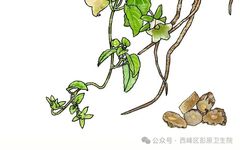Some individuals suffer from both Yin and Yang deficiency; when taking Yin-replenishing herbs, they fear coldness, and when taking Yang-replenishing herbs, they worry about excessive heat. For such individuals, Yin Er (Tremella) and Dang Shen (Codonopsis) are suitable nourishing options throughout the seasons.
——Especially for those with both Qi and blood deficiency, and a pale yellow complexion, Dang Shen can be taken long-term.

The name Dang Shen first appeared in the Ben Cao Cong Xin, stating: “According to ancient herbal texts, the best ginseng is the one from Shangdang.” During the Qing Dynasty, physicians classified a type of medicinal herb resembling Fang Feng (Saposhnikovia) with a lion’s head root as a new medicinal variety, naming it Dang Shen.

【Ancient Text Records】
1. Ben Jing Feng Yuan: “Shangdang ginseng, although it lacks the strong warming and tonifying effects, has a sweet and mild nature that provides a gentle replenishing power, unlike Sha Shen (Glehnia), which is cold and primarily dispels lung Qi.”
2. Ben Cao Cong Xin: “It tonifies the middle, benefits Qi, harmonizes the spleen and stomach, and alleviates thirst. For those with slight Qi deficiency, it is very safe to use for tonification.”
3. Ben Cao Gang Mu Shi Yi: “It treats lung deficiency and benefits lung Qi.”
4. Ben Cao Zheng Yi: “Dang Shen is capable of tonifying the spleen and nourishing the stomach, moistening the lungs and generating fluids, and promoting the movement of middle Qi. It is not very different from Ren Shen (Ginseng). Its most valuable qualities are that it strengthens the spleen without causing dryness, nourishes stomach Yin without creating dampness, moistens the lungs without causing coldness, nourishes blood without being overly rich, invigorates clear Yang, and stimulates middle Qi without causing harsh dryness.”
【Source】
The dried root of the plant Codonopsis pilosula, also known as Su Hua Dang Shen or Chuan Dang Shen. Harvested in autumn, cleaned, and dried.
【Alias】
Tiao Dang, Dan Zhi Dang, Ban Qiao Dang, Fang Dang Shen, Shang Dang Shen, Shi Tou Shen, Zhong Ling Cao, Huang Shen.
【Properties and Channels】
Nature: Neutral, Taste: Sweet. Channels: Spleen, Lung.
【Indications and Effects】
Strengthens the spleen, benefits the lungs, nourishes blood, and generates fluids. Used for spleen and lung Qi deficiency, poor appetite, fatigue, cough with shortness of breath, insufficient Qi and blood, pale yellow complexion, palpitations, shortness of breath, fluid damage with thirst, and internal heat with thirst.
【Classification】
Tonifying herbs – Qi tonifying herbs.
【Representative Formulas】
Shen Su Yin: from Tai Ping Hui Min He Ji Ju Fang

Effects: Qi deficiency with external wind-cold and internal phlegm-damp syndrome. Symptoms include fever, aversion to cold, no sweating, nasal congestion, headache, fullness and oppression in the chest, cough with white phlegm, shortness of breath, fatigue, pale tongue coating, and weak pulse.
Composition: Ren Shen (Ginseng) 6g, Zi Su Ye (Perilla Leaf) 6g, Ge Gen (Kudzu Root) 6g, Ban Xia (Pinellia) 6g, Qian Hu (Hogfennel) 6g, Fu Ling (Poria) 6g, Zhi Ke (Bitter Orange) 4g, Mu Xiang (Aucklandia) 4g, Chen Pi (Dried Tangerine Peel) 4g, Gan Cao (Licorice) 4g, Jie Geng (Platycodon) 4g.
Dosage: Add 7 slices of fresh ginger and 1 jujube, decoct in water and take warm.
Formula Song
In Shen Su Yin, Chen Pi is used, along with Zhi Ke, Qian Hu, and Ban Xia; dry Ge Gen (Kudzu), Mu Xiang (Aucklandia), Gan Cao (Licorice), and Jie Geng (Platycodon) are all included, making it most suitable for Qi deficiency with external wind-cold.


